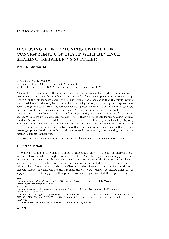摘要
This paper studies the consignment contract with revenue sharing where the retailer offers two revenue share schemes between himself and his supplier from the viewpoint of inventory ownership: One is that the retailer takes charge of the unsold items, the other one is that the retailer returns the unsold items to the supplier at the end of the selling period, and the supplier disposes those overstockings. In each contract, the retailer deducts a percentage from the selling price for each sold item and transfers the balance to the supplier. The supplier solves a two-stage problem: She first chooses contract, then decides retail price and delivery quantity according to the terms of the contract chosen. With an iso-price-elastic demand model, the authors derive the retailer and suppliers' optimal decisions for both schemes. In addition, the authors characterize how they are affected by disposing cost. The authors compare the decisions between the two schemes for disposing cost turn out to be holding cost or salvage value, respectively. The authors use numerical examples to show the supplier's first-stage optimal decision depends critically on demand price elasticity, the disposing cost and the retailer's share for channel cost.
- 出版日期2012-4
- 单位南开大学
